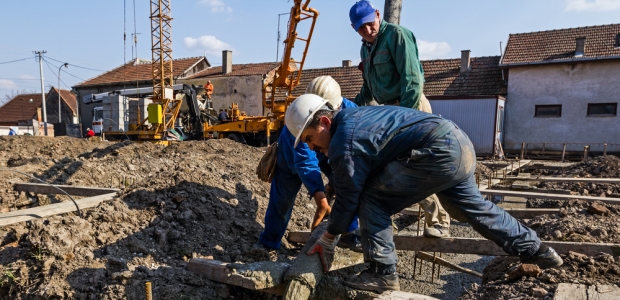
Report Assesses Climate Change's Impacts on Workers
Most at risk are outdoor workers, including agricultural workers, commercial fishermen, construction workers, transportation workers, and first responders, but workers in hot indoor environments such as warehouses and factories are also at risk of heat illnesses.
A new report from the U.S. Global Change Research Program assesses the potential impacts of climate change on workers. The document offers a comprehensive overview of the potential health effects of climate change across the United States, including outdoor workers and workers who may be exposed to extreme weather environments. The program was established by Presidential Initiative in 1989 and mandated by Congress in the Global Change Research Act of 1990 to "assist the Nation and the world to understand, assess, predict, and respond to human-induced and natural processes of global change."
It says climate change may increase the severity and prevalence of known occupational hazards and lead to the development of new hazards. Most at risk are outdoor workers, including agricultural workers, commercial fishermen, construction workers, transportation workers, and first responders, but workers in hot indoor environments such as warehouses and factories are also at risk of heat illnesses.
More frequent and more severe storms, flooding, and droughts are associated with changing climate patterns, and the U.S. wildland fire season is getting longer because of them, straining personnel and resources.
The full report is available at https://health2016.globalchange.gov.